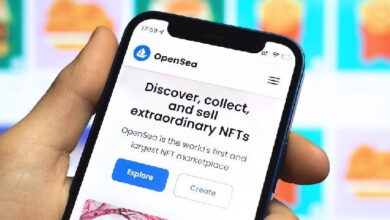Navigating Hong Kong’s New Crypto Regulations

Hong Kong has been making headlines in the crypto space ever since it announced it would allow retail crypto trading in May 2023. On June 1, Hong Kong implemented new crypto regulations to license exchanges, with the Hong Kong Securities and Futures Commission (SFC) marking the occasion by issuing a flurry of regulatory guidance for operators of Virtual Asset Trading Platforms (VATP). It is important to note that while cryptocurrencies have faced prohibition in mainland China since 2021, Hong Kong has its own distinct financial system and regulatory bodies.
On June 13, an explanation of these regulations written by Gilbert Ng — founder of consultancy firm Mura and practicing lawyer in the High Court of the Hong Kong Special Administrative Region — and Chris Lee — founder and partner of TKX capital — was translated and published by Wu Blockchain.
What are these new regulations, what do they mean, and how will they affect the growing number of crypto companies wishing to relocate to Hong Kong as their operational base? We break it all down.
SFC accepting applications from crypto exchanges
Cryptocurrency exchanges are now mandated to obtain a license from the SFC to trade and market to consumers in Hong Kong. As the SFC begins its review of license applications, pre-existing exchanges with significant operations in the city are granted a one-year grace period. During this time, they can either align their operations with the new regulations or decide to withdraw from the market.
A green light for operations will be granted by the SFC only to companies demonstrating “genuine operations and genuine business practices.” This allowance is exclusive to non-securities trading platforms.
What are “genuine operations and genuine business practices?”
What do genuine operations and practices entail? The SFC provides several determinants, including whether the platform is based in Hong Kong, if it is managed by personnel situated in the city, or if it maintains a physical office there, among others.
According to the translation from Wu Blockchain, The SFC defines operations in Hong Kong based on whether the exchange is “actively marketing to the Hong Kong public.” If an exchange, regardless of its place of incorporation, promotes its services to the Hong Kong public, it must obtain a license.
This can include various activities such as regular contact with Hong Kong investors or the public, advertising services to the Hong Kong public through mass media campaigns targeted at Hong Kong investors, and engaging in internet activities targeting Hong Kong investors.
Regulated individuals
The requirements also emphasized a need for personnel, named “regulated individuals,” to helm these crypto platforms. For example, the individuals can be a cohort comprising directors, responsible officers, and managers.
These regulated individuals will be put through a rigorous “fit and proper” assessment from the SFC, where they will need to demonstrate their professional experience, regardless of whether that experience is in Hong Kong or another jurisdiction.
If you plan on registering or applying, read the full terms for the license in SFC’s official handbook. The evolving landscape of cryptocurrency regulation, particularly in financial hotspots like Hong Kong, is a testament to the growing relevance and acceptance of digital assets worldwide. As Hong Kong diverges from mainland China’s hardline stance on cryptocurrencies, it signals the city’s commitment to establish itself as a global leader in this sector.





